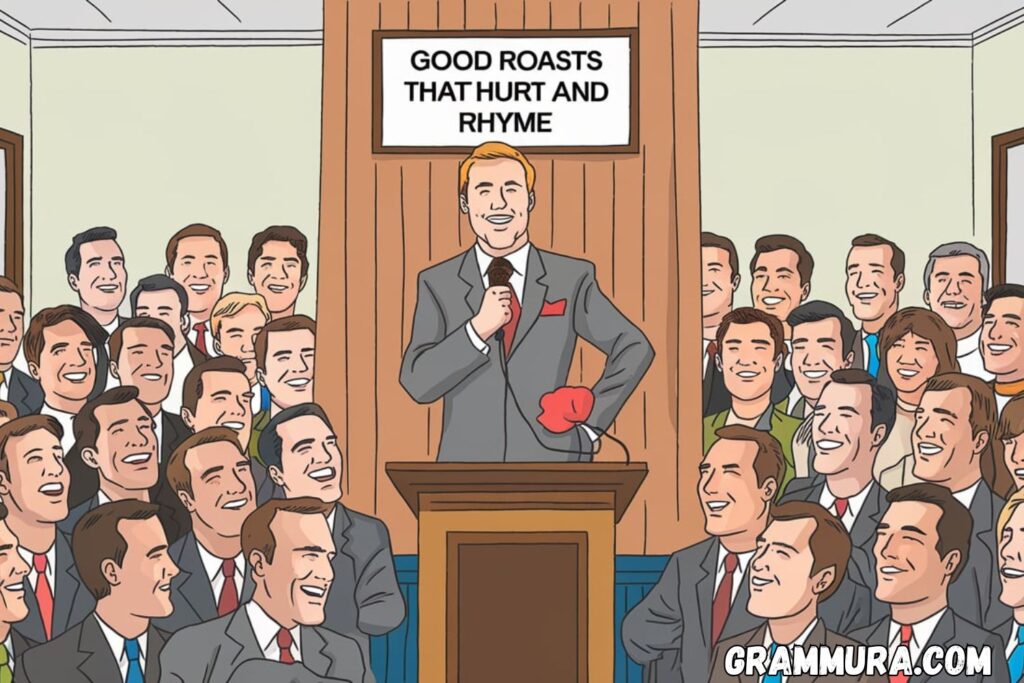“Cancellation vs Cancelation” means the same thing, but the spelling is different. One has double L, and the other has one. Both are correct, but one is more common.
Have you ever wondered which spelling is right? You see both online and in documents. It can be confusing for anyone writing in English.
In the U.S., both spellings are used, but cancellation with two L’s is more popular. It looks more formal and is preferred in most writing. Knowing the difference helps you write better.
Why is There Confusion?

The confusion around “Cancellation vs Cancelation” is a great example of how language evolution and regional spelling variations can influence the way we write. Both spellings are technically correct, but they are used differently depending on the region.
In the USA, people often use the simplified spelling: “cancelation” with a single l. In other English-speaking countries like the UK, Canada, and Australia, the preferred form is “cancellation” with a double l. This pattern of double consonants in English varies across American English vs British English and even across publishers, platforms, and dictionaries.
This uncertainty becomes more noticeable with the rise of global communication. When people write emails, policies, or blog posts, they often mix both spellings. Add in the fact that many English style guides and even spell checkers accept both forms, and it’s easy to see why people get confused.
This isn’t just about one word—it reflects deeper patterns in English grammar and spelling, including how different countries and cultures handle language standardization and writing conventions.
What Do “Cancellation” and “Cancelation” Mean?
Despite their spelling differences, both “cancellation” and cancelation mean exactly the same thing. They refer to the act of stopping, ending, or invalidating something that was previously planned or agreed upon. This can happen in many situations:
For example, a flight cancellation means your trip was called off. A subscription cancellation policy explains how you can end your streaming or software service. In health care, appointment cancellation policies ensure doctors manage their schedules efficiently.
In business and law, these terms are used in contract cancellation, subscription termination, and legal terms for ending agreements. No matter which spelling you choose, the meaning stays the same. However, for spelling consistency and professionalism, especially in formal writing standards, it’s best to stick with one spelling throughout your document.
Canceled or Cancelled? Canceler or Canceller? Canceling or Cancelling?
This debate doesn’t stop at just one word. The same confusion applies to similar forms of the verb “cancel.” Should it be cancelled or canceled? What about canceler vs canceller, and canceling vs cancelling?
Here’s where spelling conventions in English really show their regional differences. In American English spelling, the simplified form is preferred:
| American English | British English |
| Canceled | Cancelled |
| Canceling | Cancelling |
| Canceler | Canceller |
This pattern follows Noah Webster spelling reforms from the early 1800s. Webster believed in simplified American spelling, removing unnecessary letters to make English easier to read and write. These changes became part of the English orthography in the United States, but they were never adopted in British English spelling.
So if you’re writing for an American audience, it’s safe to use canceled, canceling, and canceler. But be aware that some people still prefer the double l in more formal or traditional settings.
“Cancellation vs Cancelation”: Which Spelling Should You Use?
Now comes the big question: Which spelling is correct?
For writers in the United States, both cancelation and cancellation are technically correct, but cancellation is much more common—even in American publications, websites, and legal documents.
Most dictionaries, including Merriam-Webster, list “cancellation” as the primary spelling. Popular writing platforms, grammar tools, and English style guides also recommend using the double “l” form to maintain professional communication and spelling consistency.
Here are a few real-world reasons to choose “cancellation”:
- It appears more frequently in business and academic writing
- It aligns with legal terminology in cancellation documents
- It avoids confusion when writing for international audiences
- It looks more familiar to most readers
In short, “cancellation” is the safer, more widely accepted form—especially when you’re focused on correct spelling usage in emails, reports, contracts, or blog posts.
Why Do American and British English Differ in the Use of Single or Double “L”?

The reason for these spelling differences goes back to the 1800s and the work of Noah Webster, the creator of the first American dictionary. He wanted to create a uniquely American version of English, so he simplified many British spellings.
This is why we see spelling changes not just in “cancellation vs cancelation”, but also in many other words:
| American English | British English |
| Traveling | Travelling |
| Labeling | Labelling |
| Modeling | Modelling |
| Marveling | Marvelling |
| Fueling | Fuelling |
| Signaling | Signalling |
| Dialing | Dialling |
American English spelling tends to double consonants only when the stress falls on the last syllable. British English spelling often doubles the consonant regardless of stress. This small grammar rule leads to many of the English spelling rules we use today.
This shows how language standardization history shaped the English we speak and write. While both forms are valid, understanding the origin helps explain why American English vs British English can differ so much.
Synonyms of “Cancellation”
While “cancellation” is a common word, there are many other terms you can use depending on your context, tone, or formality level. These synonyms for cancellation are especially useful in business communication terminology and legal documents.
Here are some useful alternatives:
- Annulment – Often used in legal and marriage contexts to completely void an agreement.
- Termination – Common in contract termination synonyms, employment, or service agreements.
- Abolishment – Used when ending policies, institutions, or laws.
- Revocation – Refers to removing permissions, such as licenses or approvals.
- Rescission – A legal term for undoing contracts or reversing transactions.
These terms appear often in legal terminology in cancellation, especially in industries like finance, healthcare, and real estate. Choosing the right synonym depends on your audience and the formality of your writing.
Read Also : Sniffies – Its Meaning, Origin and Usage
Examples in Context
Understanding how cancellation vs cancelation is used in real life helps clarify when and how to use these words. Let’s look at a few examples from different industries and everyday life:
Airlines experience frequent flight cancellations, especially during bad weather or peak travel times. Their cancellation policies are often detailed in ticket terms, including refund conditions and rebooking options.
In education, universities sometimes announce course cancelations when not enough students enroll. This affects academic planning, tuition payments, and class schedules.
Healthcare providers deal with appointment cancellations every day. Their systems are designed for appointment rescheduling, and most have strict cancellation policies to reduce missed visits.
Hotels and travel companies often include detailed reservation cancellation clauses. This may involve refunds, rebooking, or charges based on the timing of the subscription termination.
In all these cases, the meaning remains the same, even if the spelling differs. Still, using consistent spelling makes your writing clearer and more professional.
Origins of “Cancellation”
The word etymology of cancellation is surprisingly interesting. It comes from the Latin word “cancellare,” which originally meant “to cross out” or “make lattice-like markings.”
In the 15th century, medieval scribes would draw crosshatch lines through texts they wanted to void. This act of marking something out eventually became associated with cancelling agreements, documents, and events. By the 1530s, the word began appearing in English legal and business writing.
This origin shows how language evolution brings older meanings into new contexts. The modern spelling with double “l” likely became standardized due to historical usage and printing practices.
How Spelling Affects First Impressions in Business Writing
Using inconsistent spellings like cancelation in formal business writing may look unprofessional to clients or readers. It shows a lack of attention to spelling consistency and weakens your message.
Choosing widely accepted forms like cancellation helps maintain a strong and credible tone. In high-stakes communication, even small spelling differences can make a big impression.
Search Engines and Spelling: What Should You Use for SEO?
If you’re writing for the web, using the more common form cancellation may help with search rankings. Google tends to favor terms that appear more frequently in user searches.
While cancelation is a valid variant, it’s used far less often online. For better SEO and keyword relevance, cancellation is the smarter choice.
Academic vs Casual Writing: Which Spelling Stands Out?

In academic and formal texts, cancellation is the expected standard. Professors, editors, and institutions often follow traditional English spelling rules and style guides.
However, in casual settings like texting or social media, cancelation may appear occasionally. But for clarity and professional communication, stick with the double l.
Can Spell Checkers Always Be Trusted?
Many digital tools like Grammarly and Word’s spell checker accept both cancellation and cancelation. But that doesn’t mean both are equally appropriate in every context.
Writers should follow style guidelines instead of relying only on software. Especially when dealing with business communication terminology or legal terms, precision matters.
FAQ,s
What is the difference between cancellation and cancelation?
Both mean the same thing, but “cancellation” with double L is the more widely accepted and commonly used spelling.
Does cancellation have one L or two?
The correct and standard spelling is “cancellation” with two Ls, especially in formal and professional writing.
What is the difference between cancelled and canceled?
“Cancelled” (with double L) is British English, while “canceled” (with one L) follows American English spelling rules.
Does the double ‘l’ matter in cancellation?
Yes, using the double L in “cancellation” reflects standard usage and ensures spelling consistency in both formal and international writing.
Conclusion: Which Spelling Is Best for American Writers?
For anyone writing in the United States, the best and most widely accepted spelling is “cancellation” with two l’s. While “cancelation” is not technically wrong, it is much less common and may appear inconsistent or informal, especially in professional communication.
Following spelling conventions in English, especially those outlined by English style guides, can help you maintain clarity, accuracy, and spelling consistency. So whether you’re preparing a business proposal, academic paper, or customer service policy, use cancellation as your standard spelling.
And remember, understanding the difference between cancelled vs canceled, canceling vs cancelling, and canceler vs canceller gives you a deeper understanding of how English language variations work—and how you can master them in your own writing.



